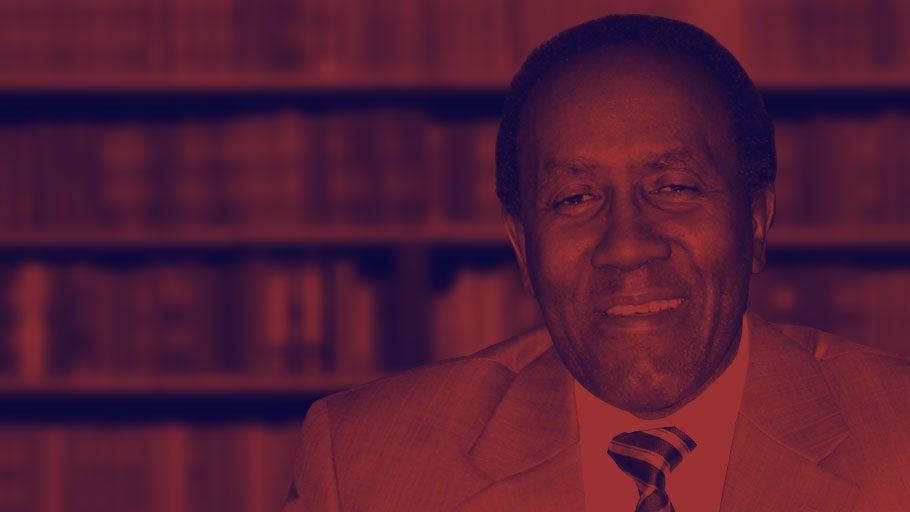The year 2014 marks one hundred years since the beginning of World War 1. That bloody encounter which is remembered as the first modern war fought in trenches, with gas and millions of soldiers dying in the process. The war also served as the catalyst for the disintegration of the Ottoman Empire, the Austria-Hungarian Empire and the collapse of Czarist Russia.
The end of the war in 1917 led to the rise of Bolshevism in Russia and later the creation of the Union of Soviet Socialist Republic (U.S.S.R). The visionary leaders of the world at the time created the League of Nations that presumably would serve as a force for world peace.
The United States entered the war belatedly and even though President Woodrow Wilson was a true believer in the League of Nations, the United States Senate adhered to isolationist principles and rejected membership in the League of Nations. What was ironical was that at the end of World War 1, the United States had emerged as the leading economic and military power in the world.
The onset of World War 11 again showed the madness of settling disputes by war. Fascism and Nazism did not prevail and the end of World War 11 in 1945 brought about the establishment of the United Nations. The United States became a member and the United Nations and the United Nations has not been as innocuous as the League of Nations. It works tirelessly to forge a consensus among members of the Security Council to intervene on humanitarian grounds and to act often unsuccessfully as an apostle for peace. In the aftermath of the Cold War multiple crises have stretched the resources of the United Nations as we observe in the case of Syria, South Sudan and the Central African Republic.
One hundred years after World War 1 the world has changed dramatically in some respects. There is the juggernaut of world trade and globalization. The world is no longer dominated by two super-powers. Europe and America are no longer at the center of the world economy. China has emerged as a major economic power and Russia, Brazil and India have catapulted on the world stage as contending economic entities. A British Broadcasting Corporation (BBC) commentator, who coined the phrase BRIC, now speaks of upcoming economic powers identified as MINT which includes Mexico, Indonesia, Nigeria and Turkey.
At the same time that we celebrate this new multi-polar economic world, one hundred years after World War 1, there are still chronic wars in the Middle East. The theatre of war in Syria is now spreading to include Iraq, Lebanon and with possible overt intervention of Iran. The ideological wars in the aftermath of World War 11 have been geographically shifted to the Middle East and turned into religious wars between Shiites and Sunni Muslims.
Although peace talks between Israelis and Palestinians are in the embryonic stage, those issues are so intractable that the possibility of a breakthrough in sanity is exceedingly unlikely.
There is some glimmer of hope in the thawing of relationships between the United States and Iran. That freeze of diplomatic relationships has lasted from the Iran taking of American hostages from 1979 to the present. Through the auspices of the United Nations and the Security Council, the world powers acting purposefully imposed severe sanctions on the theocratic regime of Iran to prevent the development of nuclear weapons. The Iranian economy has suffered and Iran has entered into negotiations to roll back its quest to develop the capacity to use nuclear weapons and to enable international inspectors to determine on an ongoing basis that the theocratic Islamic state is only interested in the peaceful pursuit of nuclear energy not the making of nuclear weapons.
If these talks are successful, it could mean the re-integration of Iran into the family of nations which would be a boost to the world’s economy and also create the goodwill on which trade and economic development supersede ideological and/or religious rancor.
In both Iran and in the United States there are powerful factions that in the words of John Lennon will not give peace a chance. The actions of the Israeli Prime Minister, Benjamin Netanyahu, have not helped the situation. The world needs to walk away from saber-rattling and focus more energy on establishing high ground.
One hundred years after World War 1, there is still the fixation that war is a sane way to settle disputes. There is no war to end all wars. At the end of World War 1, the world agreed to ban the use of gas and the Geneva conventions sought to exclude civilians from the ravages of war. The bombing of Dresden in Germany, the use of atomic bombs in Hiroshima and Nagasaki in Japan destroyed those protocols. Al Qaeda and the random killing of civilians to advance a military cause has further made it even more difficult to put that Genie back into the bottle.
Advanced civilization cannot have another 100 years of military madness. The possible agreement between Iran and the United States could create the possibility for a new pathway for world peace. None of this will be apocalyptic but at least it could set the stage for less insanity and a more peaceful 100 years. We need to create a new world that places renewed emphasis on economic development and removing more and more of the world’s population out of poverty.















